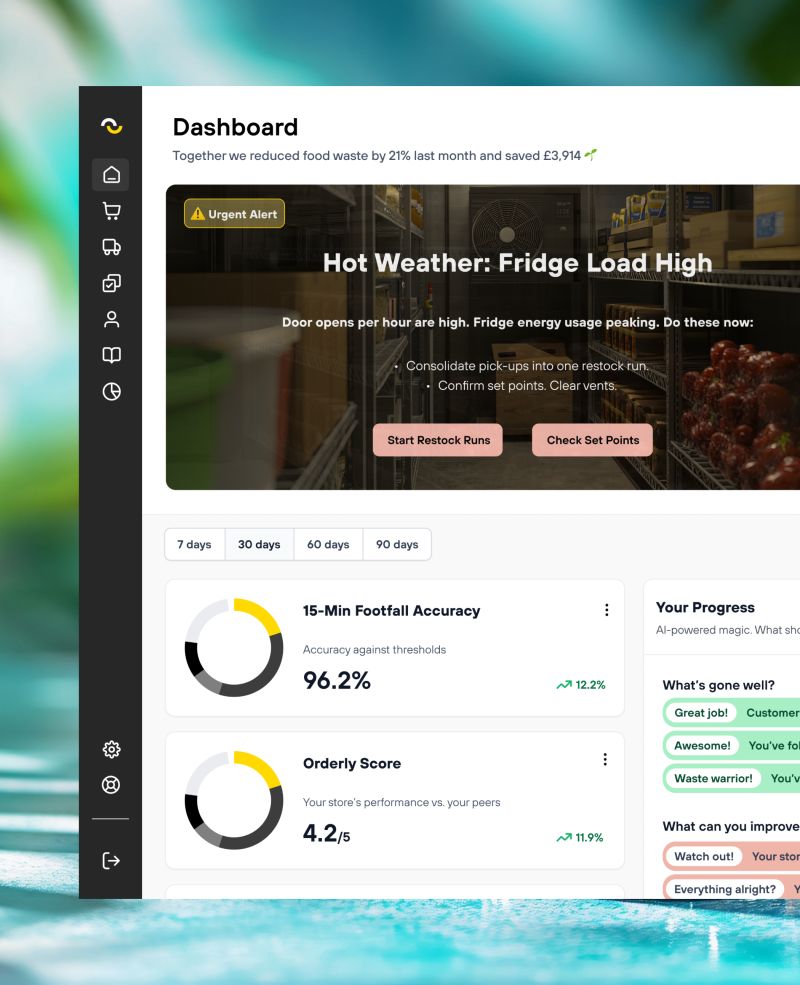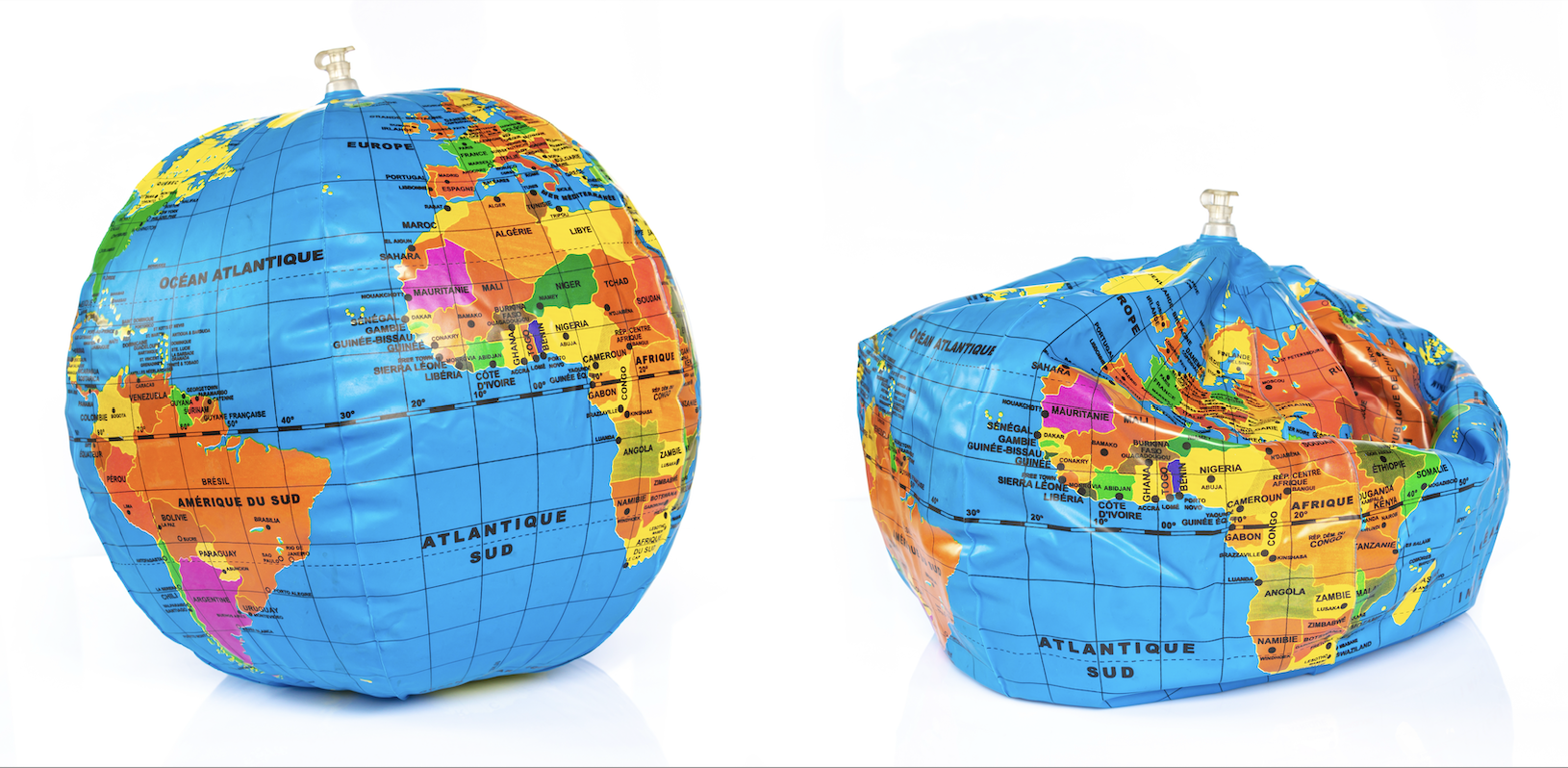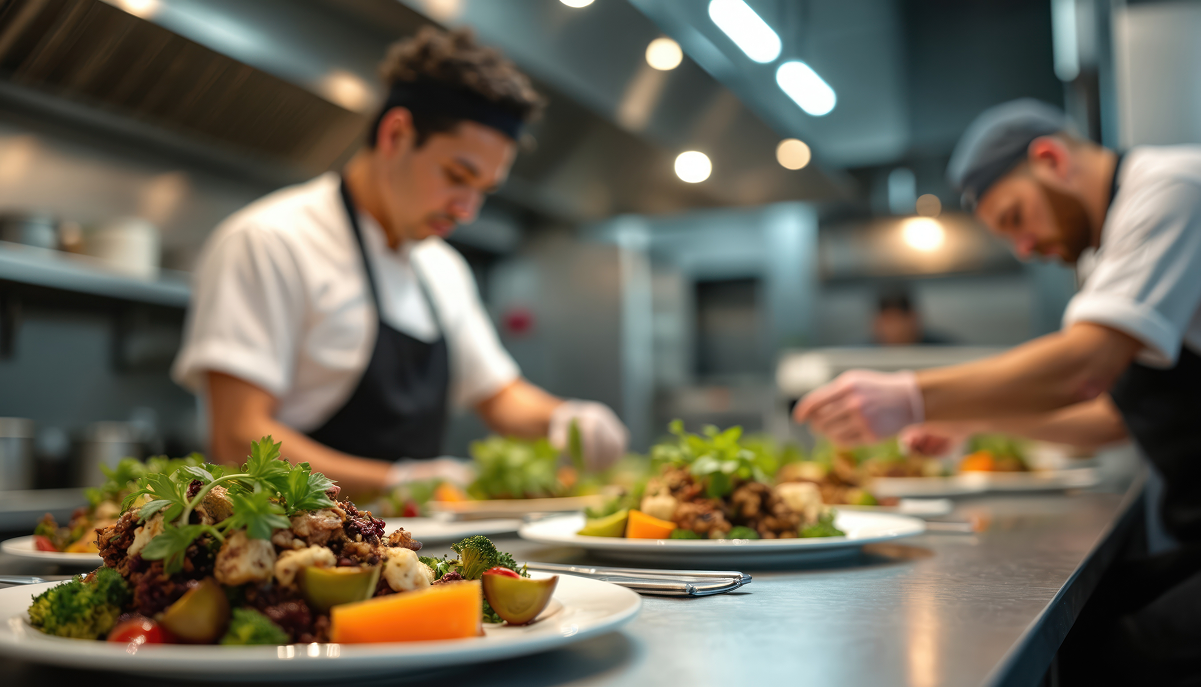The Quick Service Restaurant (QSR) industry is at a critical juncture. On one hand, there's an ever-growing demand for speed of service, fuelled by consumer desire for convenience and instant gratification. On the other, there's mounting pressure to adopt sustainable practices to counter environmental degradation. Striking a balance between these two seemingly disparate goals is where the challenge—and the opportunity—lies.
The Market Landscape
According to Statista, the global fast-food market is expected to reach $931.7 billion by 2027, growing at a CAGR of 4.6% [1]. Meanwhile, a Nielsen report states that 81% of global respondents feel strongly that companies should help improve the environment [2]. The message is clear: speed and sustainability are not optional; they are necessary to remain competitive.
Speed of Service as the Starting Point
The cornerstone of any QSR is speed. It affects everything from customer satisfaction to resource utilisation. Technology, specifically AI, is the linchpin that can align speed with sustainability.
The AI Factor
Modern machine learning algorithms like XGBoost are ideal for predictive analytics, offering insights into everything from demand forecasting to inventory management [3]. Similarly, LSTM neural networks can effectively analyse time-series data, making them perfect for predicting peak times and preparing for them without excess waste [4]. All of these operations impact speed by optimising various processes, minimising wait times, and consequently, reducing the carbon footprint by ensuring maximum resource utilisation.
The Challenge of Accurate Carbon Reporting
One of the key roadblocks to sustainability is the difficulty in accurately measuring carbon footprint. According to a study by McKinsey, the lack of accurate, consistent data is a major challenge for sustainability initiatives [5]. Standard ERP systems are ill-equipped for this. When speed of service is compromised by outdated systems, inefficiencies and waste can increase, undoing any sustainability efforts.
Vision Analytics: A Key Component
Vision analytics isn't just a standalone technology; it's most effective when incorporated into a larger ecosystem. Orderly’s digital store assistant uses vision analytics to detect anomalies or inefficiencies in real-time, offering solutions before they become problems. This directly ties back to speed by eliminating bottlenecks, ensuring faster service, and enhancing sustainability through waste reduction.
Additional Innovations from Orderly
- Real-Time Waste Audits: Our integrated stock management platform eliminates the time lag in reporting waste. It aligns perfectly with the need for speed, allowing immediate actions that are also sustainable.
- Dynamic Resource Allocation: We use real-time data to dynamically allocate resources. This ensures that employees and utilities are optimally used, directly contributing to speed and minimising waste [6]
- Material Forecasting and Ordering: Our order management tool uses AI to place the best orders for the store, managing material requirements around delivery schedules and reducing under and over-ordering.
Conclusion
Speed of service is the linchpin around which the modern QSR revolves. It's intertwined with every operational aspect, from customer service to supply chain management. It also forms the foundation upon which sustainable practices can be built. Technologies like AI and vision analytics, integrated into platforms like Orderly, offer a roadmap to achieve this balance.As a B-Corp, we're as committed to creating a positive impact as we are to business success. We believe that speed and sustainability can co-exist to define the future of the QSR industry. Our toolkit is designed to help you achieve this harmony efficiently.Sources:
- Statista, "Fast Food Industry - Statistics & Facts", 2021.
- Nielsen, "Sustainable Shoppers Buy the Change They Wish to See in the World", 2018.
- Chen, Tianqi, and Carlos Guestrin. "XGBoost: A Scalable Tree Boosting System", 2016.
- Hochreiter, Sepp, and Jürgen Schmidhuber. "Long Short-Term Memory", Neural Computation 9, no. 8, 1997.
- McKinsey, "Starting at the source: Sustainability in supply chains", 2016
- Mistry, Ilesh, "Blockchain for Supply Chain Transparency and Traceability", 2020.
Interested in a tailored solution for your QSR? Get in touch with Orderly today.Cheers,The Orderly Team










.svg)

.svg)
.svg)